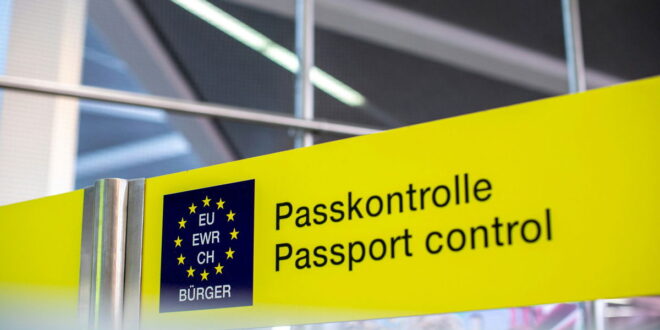By: Olivier Acuña Barba •
Published: 10 Apr 2025 • 22:59
• 2 minutes read
Daniel Schludi, Unsplash| Daniel Schludi – Unsplash
Recent EU announcements state that Britons, and other non EU nationals traveling to Schengen in October 2025 will have new entry requirements. The EU’s ministers of home affairs have approved the introduction of a new Entry/Exit System.
EESThe EU Home Affairs Ministers changed the timeline to six months.
Also, they approved the implementation the of the European Travel Information and Authorisation System.ETIASBy the end of 2026.
A European Union Council statement Explains that the new system of exit and entry requires UK passport holders and those from other non-EU countries to register biometric data, such as fingerprints and images of the face, upon entering the bloc.
The EES is a digital border management program that registers non-EU citizens travelling on a brief stay each time they pass the external borders of the 29 European countries who use the system. ‘Short stay’ means up to 90 days within any 180-day period.
The Council said that the purpose of EES was to modernise and simplify border management within Schengen countries.
The new UK ETA regulations and the new travel schemes are available to the public almost simultaneously.
ETIAS explained
It was also stated that ETIAS is required for non-EU nationals who travel to these countries. 30 European countries. It will cost €7 for people aged 18 to 70, but it will be free for under-18s and over-70s.
ETIAS can be linked with a passport for up to 3 years. The ETIAS allows the holder to travel up to 90-days in any 180 day period to Schengen.
The ETIAS is not a visa, but it does allow entry. This is similar to the electronic visa in the US. The border guards may ask for other documents and review passports to verify that travellers meet the entry requirements.
EES and ETIAS: Differences
Both systems will strengthen European security, as well the security of travellers,” said another EU statement explains.
ETIAS is the new requirement for travelers who don’t need a visa for short stays in 30 European countries. Visa-free travellers are required to apply for an authorisation of travel before they embark on their journey. ETIAS does not constitute a visa.
ETIAS does not require any other information than the personal details of travelers. This includes their address, passport information, occupation and past travels to conflict zones.
The EES, on the other hand, will collect facial images, fingerprints, data from travel documents, points of entry and departure, and information about Schengen countries.
 Costa News Spain Breaking News | English News in Spain.
Costa News Spain Breaking News | English News in Spain.





